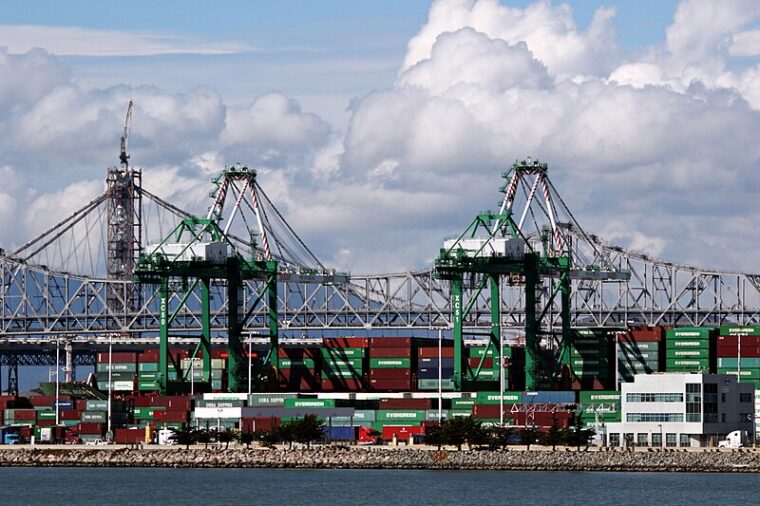
California is developing a series of first-in-the-nation cloud-based port data systems across five ports to enhance the maritime supply chain and movement of goods. The state will invest $27 million through the California Containerized Ports Interoperability Grant Program (CCPI) to support 10 projects that will address challenges in port operations and climate resiliency. These solutions include optimizing cargo-routing, deploying cutting-edge technology, developing cargo data standards and adopting trucking appointment systems.
The CCPI program will help the state port systems achieve four key objectives to ensure the long-term interoperability and success of the port ecosystem. The goals include:
Ensuring the ports achieve federal alignment. This includes aligning port proposals and data systems with federal goals and initiatives for goods movement, efficiency and environmental benefits.
Reducing greenhouse gas (GHG) emissions through data management to meet regional, state and federal climate goals.
Increasing economic competitiveness through comprehensive data management and organization.
Enhancing community and port ecosystem stakeholder engagement to promote equitable participation, knowledge sharing and benefits.
The port of Los Angeles (POLA) will receive $7.95 million – the largest portion of the awards – for three projects to improve information sharing, increase scheduling transparency and optimize data accessibility.
The first project will develop the California Ports Mobile Application (CalPorts). The application will broaden visibility and insights into container movement across selected ports, allowing cargo owners to streamline the flow and reduce the time and cost of goods movement. The project will make it easier for ports to send data, enhancing operational efficiency and emissions reductions by mitigating the risk of congestion, delays and disruptions.
The second project will use AI to enhance the in-development trucking appointment system. The system will integrate cross-terminal scheduling tools with real-time container tracking data. The port will combine the two applications into a single platform to make it easier to identify and move containers. The application may also accommodate other port trucking appointment system data feeds into the future to create a seamless interface for managing and optimize scheduling.
POLA will develop and deploy the Carbon Intensity Gateway as the third project. The port’s portal will provide a real-time Green Asset Score based on rail, trucking, vessel and on-port equipment particulate and GHG emissions. The information will help optimize routes that balance cargo speed and emissions impact. The platform will unify information gathered from the Clean Air Action Plan, Air Emissions Inventory, the Environmental Management System and the Clean Truck Program to simplify data access to a single source.
Other recipients receiving funding include:
The port of Long Beach will use $7.9 million to support three projects. The initiatives will extend the port’s existing Supply Chain Information Highway, use data analytics to improve port efficiency and develop a non-containerized data system and data model standards.
The port of San Diego will spend $4.2 million to create a centralized digital system to support maritime operations and terminal management. The project will minimize manual processes and allow the port to share information more easily.
The port of Hueneme will use $4 million to leverage cloud-based infrastructure to integrate maritime port and terminal management solutions and backend systems. This will help transition the port away from manual data entry and management to seamlessly sharing vital information through a unified port-wide data system.
The port of Oakland will receive $3 million to develop an integrated data environment that will use new data sets and processes to distribute critical information. The port will also create a unified marine terminal appointment system to support scheduling and management within the port ecosystem.
Photo by Basil D Soufi
The post California ports to develop systems to improve interoperability, management appeared first on Government Market News.
